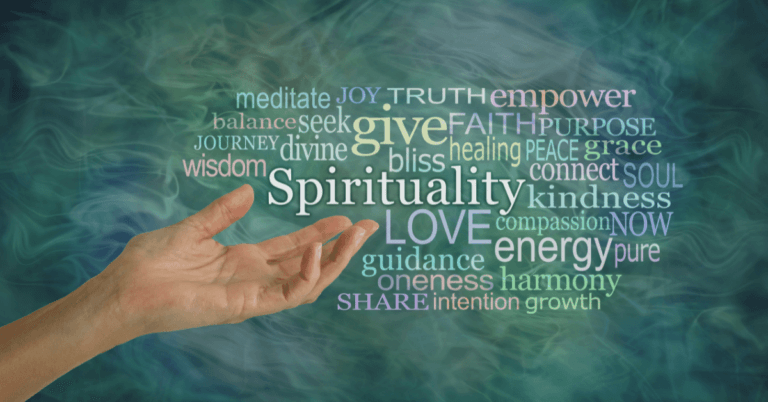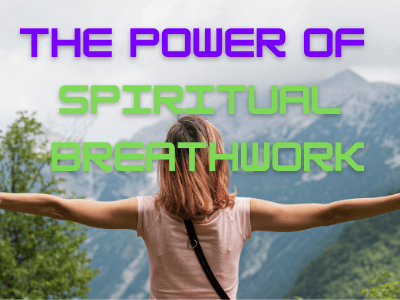Toxic Spirituality And Its 5 Signs-BEWARE
In our quest for spiritual growth and self-discovery, it is essential to be aware of the concept of toxic spirituality. While spirituality can be a transformative and empowering journey, there is a dark side that often goes unnoticed.
Toxic spirituality encompasses various harmful behaviors and beliefs that can hinder personal growth and harm others. In this article, we will explore the concept of toxic spirituality, its signs, and how to approach it more healthily.
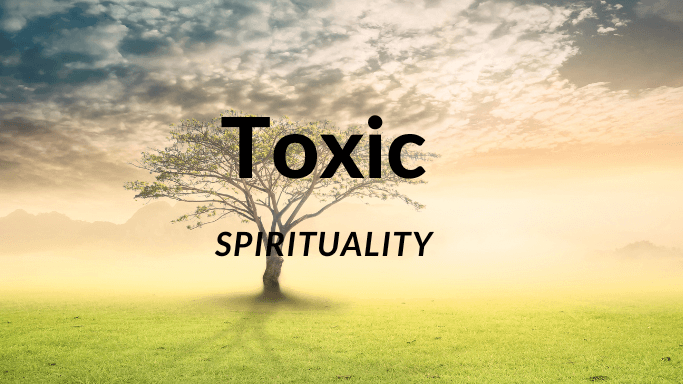
Approaching Toxic Spirituality:
A Balancing Act Approaching toxic spirituality requires a delicate balance between embracing spirituality and acknowledging its potential pitfalls. It is essential to cultivate self-awareness and mindfulness in our spiritual journey. By recognizing our own biases, fears, and vulnerabilities, we can navigate the spiritual path with authenticity and integrity.
Don’t Act Around People :
“Don’t act around people” is an aspect related to toxic spirituality that involves being inauthentic or putting on a false persona in social interactions. Here’s a closer look at this behavior:
Dishonesty and Inauthenticity:
When individuals engage in toxic spirituality, they may feel compelled to present themselves in a way that aligns with their perceived spiritual image or ideals, even if it does not reflect their true thoughts, feelings, or beliefs. This leads to a lack of authenticity and genuine connection with others.
Fear of Judgment and Rejection:
The fear of being judged or rejected by others can drive individuals to act in certain ways to gain acceptance or validation. In toxic spirituality, this fear can be heightened, as individuals may believe that they need to portray themselves as spiritually advanced or enlightened to be accepted within their spiritual communities.
Inner Conflict and Dissonance:
Constantly acting around people creates a dissonance between one’s true self and the projected image. This inner conflict can lead to emotional and psychological distress, as individuals struggle to reconcile their true identity with the façade they present to others.
Embracing authenticity and genuine self-expression is crucial for personal growth and meaningful connections. By allowing ourselves to be vulnerable and true to who we are, we invite others to do the same. Authenticity cultivates genuine relationships and fosters a sense of belonging where individuals can be accepted and valued for their true selves.
New Age Spirituality Is Toxic
The statement “new age spirituality is toxic” is a broad and subjective generalization. New Age spirituality is a loosely defined term that encompasses a wide range of beliefs, practices, and philosophies that often focus on personal growth, self-discovery, holistic healing, and spiritual enlightenment. Like any belief system or movement, it can be perceived differently by different people.
Some critics argue that certain aspects of the New Age movement can be problematic or potentially harmful. They might point out instances of spiritual bypassing (using spirituality to avoid addressing real-life problems), cultural appropriation, unrealistic promises, or encouraging rejection of evidence-based practices in favor of pseudoscience.
On the other hand, supporters of New Age spirituality emphasize its focus on positivity, self-empowerment, and exploring alternative ways of thinking about spirituality and existence.
As with any belief system or spiritual practice, it’s essential to approach it critically, be open-minded, and be aware of any potential negative aspects. Individuals should be discerning in choosing practices that resonate with them and that promote well-being and understanding while being cautious of any harmful ideologies.
It’s important to remember that beliefs and practices vary greatly within the New Age movement, and not all aspects of it may align with a person’s values or needs. Ultimately, what one may consider “toxic” can vary based on individual perspectives and experiences.
5 Signs Show You Are Engaging In Toxic Spirituality
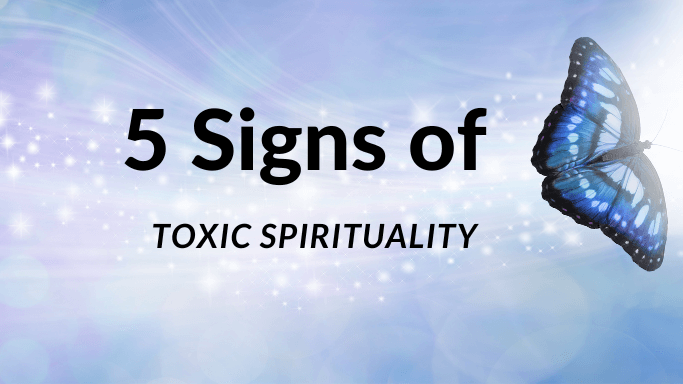
1. Pushing Spirituality On Others
One of the signs of toxic spirituality is pushing spirituality onto others. This behavior involves imposing one’s spiritual beliefs, practices, or ideologies onto others without respecting their journeys. Here are some key points to consider regarding this aspect:
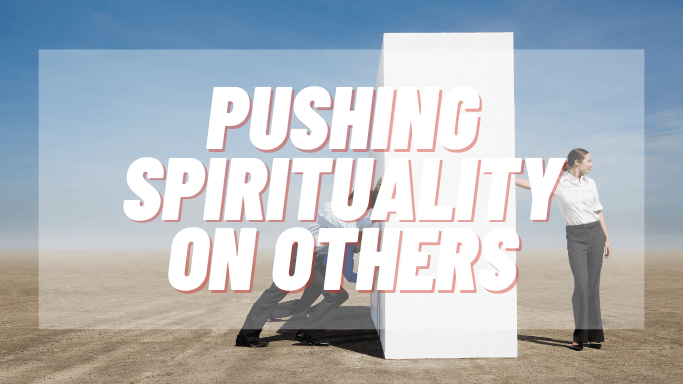
Lack of Respect for Individual Paths: Toxic spirituality disregards the fact that each person’s spiritual journey is unique and deeply personal. It fails to acknowledge that what works for one individual may not necessarily work for another. Pushing spirituality onto others implies a lack of respect for their autonomy and the diversity of beliefs and practices.
Imposing Beliefs: Toxic spiritual individuals may try to persuade or convince others to adopt their specific spiritual beliefs or practices. They may be rigid in their thinking and unwilling to consider alternative perspectives. This approach disregards the importance of free will and personal choice in matters of spirituality.
Dismissing Other Paths: Those engaged in toxic spirituality may dismiss or belittle alternative spiritual paths or practices that differ from their own. This dismissive attitude reflects a lack of open-mindedness and a failure to appreciate the vastness and richness of the spiritual landscape.
Unwillingness to Listen: Instead of engaging in meaningful dialogue and listening to others’ perspectives, toxic spiritual individuals tend to dominate conversations, seeking to impose their views. They may exhibit an air of superiority, assuming they possess the ultimate truth or wisdom.
Creating Division: Pushing spirituality onto others can create divisions and conflicts within relationships, communities, or even larger social circles. By disregarding the boundaries and personal choices of others, toxic spirituality can damage trust, respect, and harmony.
2. Toxic Positivity

Toxic positivity is another sign of toxic spirituality. It involves an excessive focus on maintaining a positive mindset while denying or invalidating negative emotions and experiences. Here’s a closer look at toxic positivity:
Invalidating Genuine Emotions: Toxic positivity often dismisses or trivializes the experiences and emotions of others by responding with overly positive statements like “Just think positive!” or “Everything happens for a reason.” This invalidation can make individuals feel unheard, unsupported, or judged for experiencing natural human emotions.
Ignoring Real Challenges: Instead of addressing real challenges and difficulties, toxic positivity encourages individuals to “just stay positive” or “find the silver lining.” While optimism and a positive mindset have their merits, it’s important to acknowledge and actively work through challenges, rather than ignoring or minimizing them.
Pressure to Maintain a Facade: Toxic positivity creates pressure to put on a happy face and pretend that everything is okay, even when it’s not. This pressure can lead to emotional exhaustion and an inability to authenticate genuine emotions. It can also prevent individuals from seeking the necessary support or taking appropriate actions to address their concerns.
Lack of Empathy and Understanding: When toxic positivity is prevalent, there is often a lack of empathy and understanding toward those who are struggling or experiencing difficult emotions. The focus on constantly projecting positivity can make it challenging for individuals to provide genuine support and validation to others in times of need.
3. Ignoring & Suppressing Negative Emotions
Ignoring and suppressing negative emotions is another sign of toxic spirituality. Here’s a closer look at this aspect:
Denial of Authentic Emotions: Toxic spirituality often encourages individuals to dismiss or ignore negative emotions such as sadness, anger, fear, or frustration. It promotes the belief that these emotions are “bad” or “negative” and should be avoided. This denial prevents individuals from fully acknowledging and understanding their emotions, leading to unresolved issues and potential emotional distress.
Emotional Repression: Instead of allowing themselves to feel and process negative emotions, individuals engaged in toxic spirituality may suppress or push them away. They may believe that by ignoring these emotions, they are being more spiritually evolved or enlightened. However, repressed emotions can manifest in various harmful ways, such as increased stress, physical ailments, or emotional outbursts.
Spiritual Bypassing: Ignoring or suppressing negative emotions can be a form of spiritual bypassing, where individuals use spirituality as a means to avoid dealing with underlying emotional or psychological issues. By focusing solely on positive or “high vibration” experiences, they fail to address the deeper healing work that needs to take place.
Incomplete Healing: True spiritual growth involves embracing the full spectrum of human emotions and experiences. By ignoring or suppressing negative emotions, individuals hinder their healing process. Healing requires acknowledging, understanding, and working through these emotions to achieve balance and wholeness.
Disconnecting from the Authentic Self: Ignoring and suppressing negative emotions can lead to a disconnection from one’s authentic self. By constantly putting on a facade of positivity, individuals may lose touch with their true emotions and needs. This disconnection can hinder personal growth and authentic spiritual development.
4. Spiritual Gaslighting

Spiritual gaslighting is another sign of toxic spirituality. It involves manipulating or invalidating someone’s experiences, emotions, or perceptions using spiritual concepts or beliefs. Here’s a closer look at this harmful behavior:
Invalidating Personal Experiences:
In spiritual gaslighting, individuals may dismiss or undermine someone’s personal experiences by suggesting that their feelings or perceptions are not valid or real. They may use spiritual teachings or ideologies to discredit the other person’s reality, causing them to doubt their own experiences.
Minimizing Emotional Distress: Spiritual gaslighting often downplays or trivializes the emotional distress or pain experienced by others. It may involve statements like “You’re just being too sensitive” or “You need to let go and trust the universe.” This dismissive attitude can invalidate genuine emotions and prevent individuals from seeking support or addressing their emotional needs.
Manipulating through Spiritual Authority: Individuals engaged in spiritual gaslighting may use their perceived spiritual authority or expertise to manipulate and control others. They may assert that their interpretations of spiritual teachings are the only valid ones and discourage questioning or critical thinking.
Undermining Autonomy and Empowerment: Spiritual gaslighting can erode a person’s sense of autonomy and empowerment. By undermining their confidence in their own experiences and perceptions, it disempowers them and makes them more susceptible to manipulation and control.
5. Cult Culture

Cult culture is another sign of toxic spirituality. It refers to the presence of cult-like behaviors and dynamics within spiritual communities or groups. Here are some key characteristics of cult culture:
Authoritarian Leadership: Cult Culture often revolves around a leader or authority figure who holds absolute power and control over the group. This leader may dictate beliefs, practices, and lifestyles, leaving little room for individual autonomy or critical thinking.
Group Conformity: In a cult-like environment, there is a strong emphasis on conformity and strict adherence to the group’s ideologies and norms. Individuality and independent thought are discouraged, and deviation from established beliefs may be met with punishment or rejection.
Isolation from Outside Influence: Cult culture often isolates its members from outside influences, including family, friends, and the broader society. This isolation serves to create dependency on the group and its leaders, making it challenging for individuals to question or leave the group.
Manipulation and Mind Control: Cult-like groups employ various manipulative tactics to control and influence their members. This can include tactics such as love bombing (excessive affection and attention), gaslighting (manipulating individuals’ perception of reality), and thought-stopping techniques (discouraging critical thinking or questioning).
Emotional and Psychological Abuse: Cults often perpetuate emotional and psychological abuse within their dynamics. This can involve tactics such as shaming, guilt-tripping, or fear-based manipulation to maintain control over members’ thoughts and behaviors.
Us vs. Them Mentality: Cult culture thrives on creating an “us vs. them” mentality, where the group is seen as superior or chosen, while outsiders are perceived as inferior or dangerous. This fosters a sense of exclusivity and fosters division within communities.
Final Thoughts: Navigating the Shadows of Toxic Spirituality
Toxic spirituality is a phenomenon that can hinder personal growth, harm relationships, and create divisions within spiritual communities. Recognizing the signs of poisonous spirituality, such as pushing spirituality onto others, toxic positivity, ignoring and suppressing negative emotions, spiritual gaslighting, and cult culture, is essential for fostering a healthier and more authentic spiritual journey.
Approaching spirituality with mindfulness, self-reflection, and respect for individual paths allows us to navigate the shadows of toxic spirituality. Taking the time to pause, reflect, and question our beliefs and practices helps us develop a more discerning and balanced approach to spirituality. Embracing authenticity and vulnerability, instead of acting around people, fosters genuine connections and supports personal growth.
It’s important to honor and validate the full range of human emotions, both positive and negative. Ignoring or suppressing negative emotions hinders our healing process and disconnects us from our authentic selves. True spiritual growth comes from acknowledging, understanding, and working through these emotions to achieve balance and wholeness.
Furthermore, being aware of the cult culture and avoiding its dynamics within spiritual communities is crucial. Building inclusive and compassionate spiritual environments requires respecting individual autonomy, fostering open dialogue, and promoting critical thinking.
In conclusion, toxic spirituality can hinder our personal and spiritual growth. By recognizing the signs and approaching spirituality with authenticity, mindfulness, and empathy, we can navigate the shadows and foster a healthier, more fulfilling spiritual journey. Embracing our true selves and honoring the full spectrum of human experiences allows us to cultivate genuine connections, promote personal growth, and contribute to a more compassionate and inclusive spiritual community.

